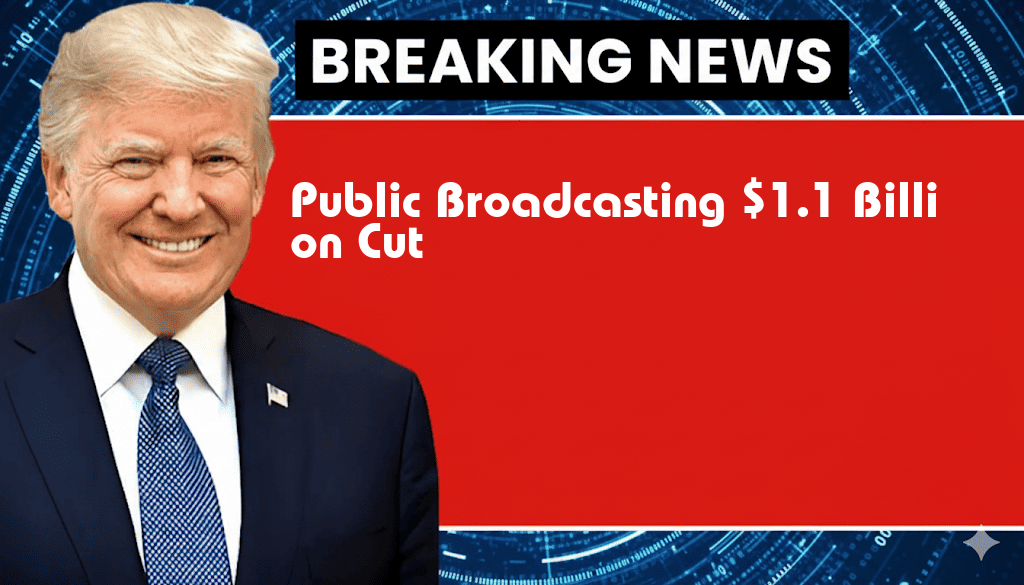Public Broadcasting Faces $1.1 Billion Reduction in Rescissions Act
The landscape of public broadcasting in the United States is poised for significant change following the recent passage of the Rescissions Act, which aims to reduce federal spending across various sectors. Among the most affected is the Corporation for Public Broadcasting (CPB), which is set to experience a staggering $1.1 billion cut. This development raises concerns about the future of public media services that provide essential programming, news coverage, and educational resources to millions of Americans. Stakeholders within the public broadcasting community are now grappling with the implications of this funding reduction, which could lead to potential layoffs, programming cuts, and diminished access to quality content for viewers and listeners nationwide.
Understanding the Rescissions Act
The Rescissions Act, which was recently approved by Congress, aims to curtail government spending by rescinding previously allocated funds across multiple departments. The act, part of a broader fiscal responsibility initiative, is intended to address budgetary concerns and reduce the national deficit. However, critics argue that the sweeping cuts fail to consider the vital role public broadcasting plays in informing and educating the public.
Impact on the Corporation for Public Broadcasting
The Corporation for Public Broadcasting is the primary funding source for public television and radio stations throughout the U.S. Established in 1967, the CPB supports over 1,500 local public television and radio stations, providing a platform for independent journalism, arts programming, and educational content. The upcoming $1.1 billion reduction represents a significant percentage of its annual budget, raising alarms among public media advocates.
- Program Cuts: Many stations may be forced to scale back or eliminate popular programs that serve diverse audiences.
- Job Losses: The funding cuts could lead to layoffs, affecting producers, reporters, and support staff across the country.
- Community Resources: Educational initiatives and local community outreach programs could be significantly impacted, limiting access to critical content.
Reactions from Public Broadcasting Leaders
Leaders within the public broadcasting sector have expressed deep concern regarding the implications of the funding cuts. Patricia Harrison, President and CEO of CPB, stated, “The public media system has a proven track record of serving communities, and these cuts threaten our ability to provide quality content that informs and inspires.” Furthermore, many local stations have voiced their worries about losing their unique programming that caters to local interests and needs.
Public Response and Advocacy Efforts
The public response to the Rescissions Act has been mixed. While some citizens support the need for fiscal responsibility, many advocates for public broadcasting argue that investing in quality media should remain a priority. Advocacy groups are mobilizing to protest the cuts, emphasizing the importance of public broadcasting in promoting democracy, culture, and lifelong learning.
In light of these developments, several campaigns have emerged, urging citizens to contact their representatives and express support for public broadcasting. Social media platforms have also become a battleground for discussions about the value of public media, with hashtags such as #SavePublicMedia gaining traction.
Potential Alternatives and Solutions
In response to the funding crisis, some public broadcasting stations are exploring alternative funding models. These include:
- Increased Local Funding: Seeking more robust partnerships with local businesses and philanthropic organizations.
- Crowdfunding: Launching campaigns to gather financial support directly from listeners and viewers.
- Digital Expansion: Investing in online content and streaming services to reach broader audiences and generate advertising revenue.
Looking Ahead
The challenges posed by the Rescissions Act will likely reshape the public broadcasting landscape for years to come. As CPB and local stations navigate these cuts, they will need to adapt to ensure they continue to serve their communities effectively. The future of public broadcasting will depend on the ability of these organizations to innovate and find new ways to engage with the public while advocating for the essential role they play in American society.
For further information on the implications of the Rescissions Act and the role of public broadcasting, visit Wikipedia or check out additional insights from Forbes.
Frequently Asked Questions
What is the impact of the $1.1 billion reduction in the Rescissions Act on public broadcasting?
The $1.1 billion reduction in the Rescissions Act poses a significant threat to public broadcasting by limiting funding that supports various programs and services, potentially leading to cuts in quality content and local programming.
How will the funding cuts affect local broadcasting stations?
The funding cuts may lead to a decrease in resources for local broadcasting stations, jeopardizing their ability to provide community-focused content, news coverage, and educational programming that serves the public interest.
What are the potential consequences for viewers if public broadcasting faces severe budget cuts?
If public broadcasting experiences severe budget cuts, viewers may notice a decline in the diversity and quality of programming, fewer educational resources, and reduced access to important local and national news.
Are there any measures being taken to address the funding shortfall?
Advocates for public broadcasting are exploring various measures, including lobbying for increased funding, seeking alternative revenue sources, and raising public awareness about the importance of maintaining robust broadcast services.
How can the public support public broadcasting during these funding challenges?
The public can support public broadcasting by donating directly to their local stations, participating in fundraising events, and advocating for policies that protect and enhance funding for public media.
